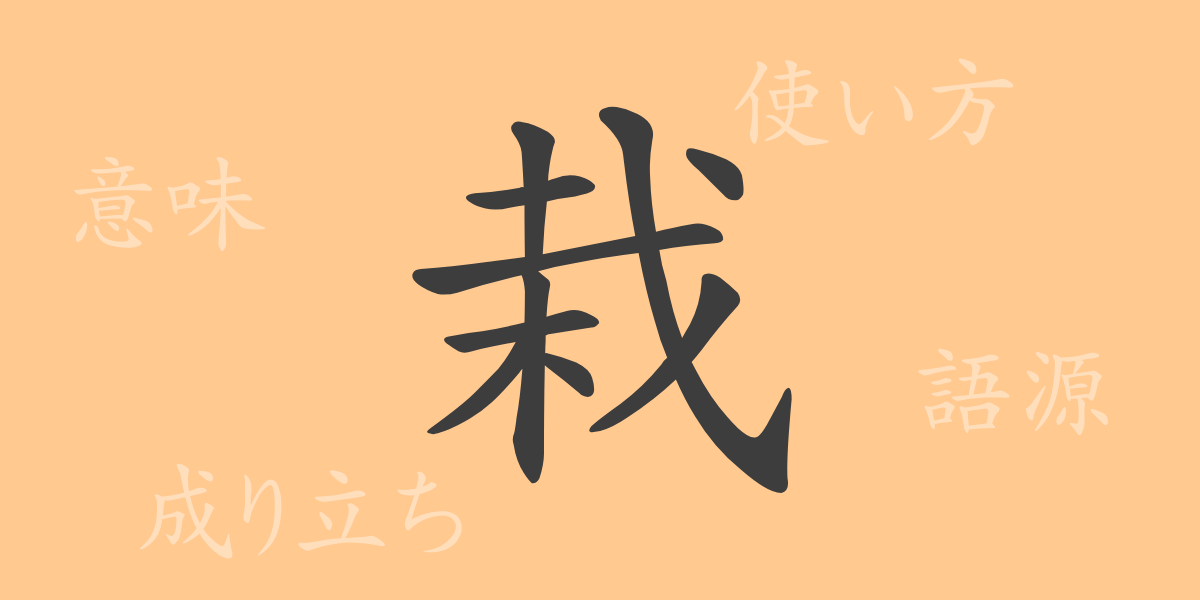The kanji deeply rooted in Japanese culture often symbolize nature and traditions closely tied to our lives. Among them, the kanji “栽” (sai) represents words that symbolize nature and culture. In this article, we will delve into the meaning and origin of “栽” (sai), as well as the idioms and phrases used in daily life. Let’s explore the history and knowledge hidden within this single kanji together.
Etymology of 栽 (sai)
The kanji “栽” (sai) is derived from ancient Chinese characters and is used in the word “栽培” (saibai), which means to cultivate crops. This character is composed of the radical “木” (ki, meaning tree) and “采” (sai), which indicates the pronunciation. “采” originally depicted the act of obtaining a hat adorned with colorful feathers, and thus came to mean “to gather” or “to pick.” Therefore, “栽” evolved from the act of “gathering” trees and plants to mean cultivating them.
Meanings and Usages of 栽 (sai)
The kanji “栽” (sai) is primarily used to mean cultivating plants. This concept extends to agriculture and horticulture, where the act of cultivation is derived from this character. Figuratively, it is also used to mean nurturing talent or human resources. For example, in the phrase “人材を栽培する” (jinzai o saibai suru), it is used not to mean directly cultivating plants but to develop a person’s abilities or talents.
Reading, Stroke Count, and Radical of 栽 (sai)
The kanji “栽” (sai) has essential elements such as readings, stroke count, and radical.
- Reading: In the on’yomi reading, it is read as “サイ” (sai), and it has no kun’yomi reading.
- Stroke count: It consists of 10 strokes.
- Radical: The radical is 木部 (kihen, meaning tree).
Idioms, Phrases, and Proverbs Using 栽 (sai) and Their Meanings
There are many idioms, phrases, and proverbs in Japanese that include “栽” (sai). Here are some examples and their meanings:
- 栽培 (さいばい, saibai): To plant and cultivate plants; also, to develop human resources or talents.
- 栽蔵 (さいぞう, saizō): To deeply cultivate and store talents or knowledge.
- 水を栽えば流れる (みずをさいえばながれる, mizu o saieba nagareru): A proverb meaning that useless efforts yield no results.
Conclusion on 栽 (sai)
The kanji “栽” (sai) encompasses a wide range of meanings, from cultivating plants to nurturing talents and human resources. As a common-use kanji in Japan, it is used in various fields such as agriculture and education. This single character embodies the vital value of nurturing life and plays a crucial role in our lives. We hope that the knowledge you have gained about “栽” (sai) will help deepen your understanding of the language in your daily life.

























